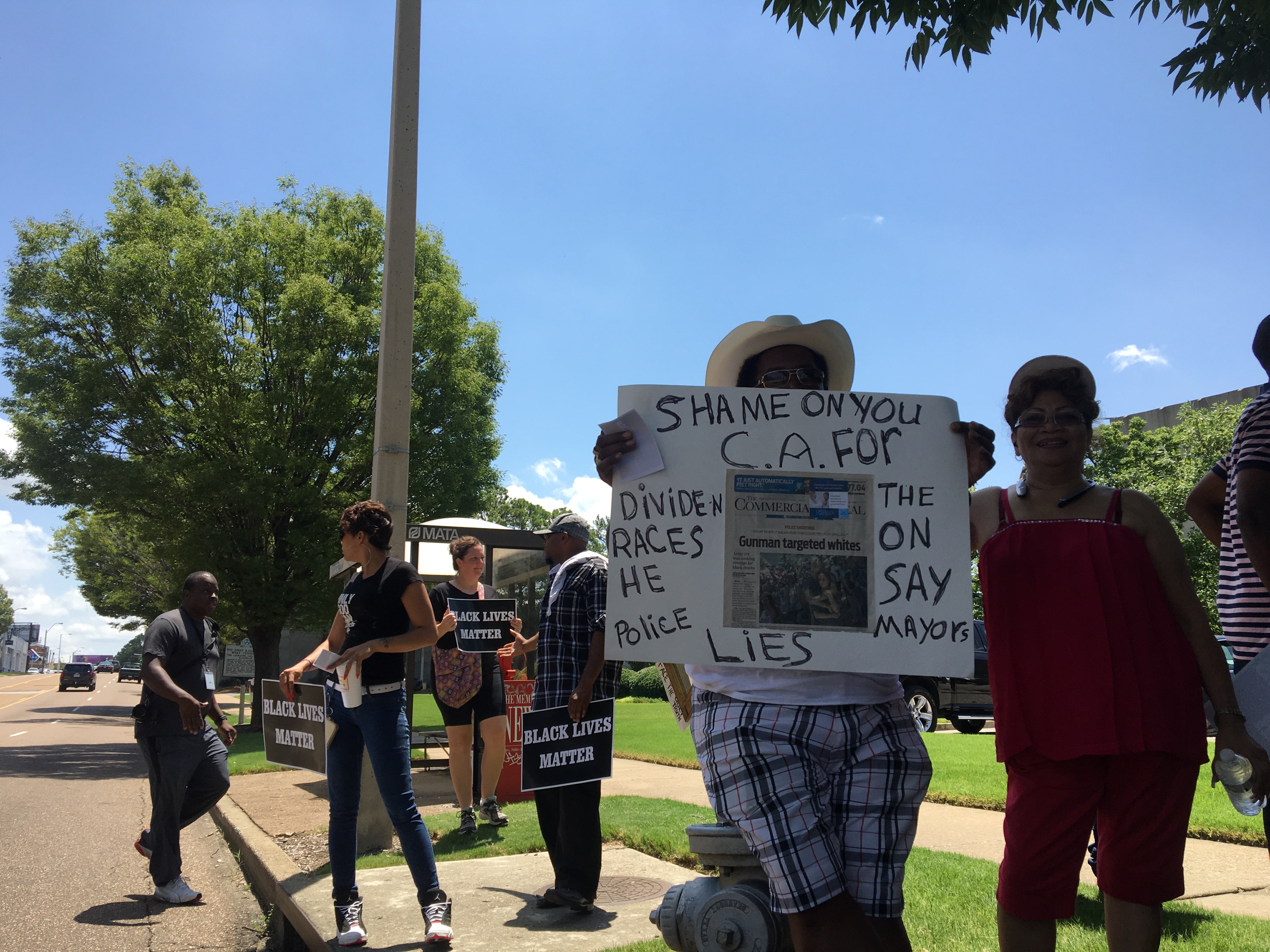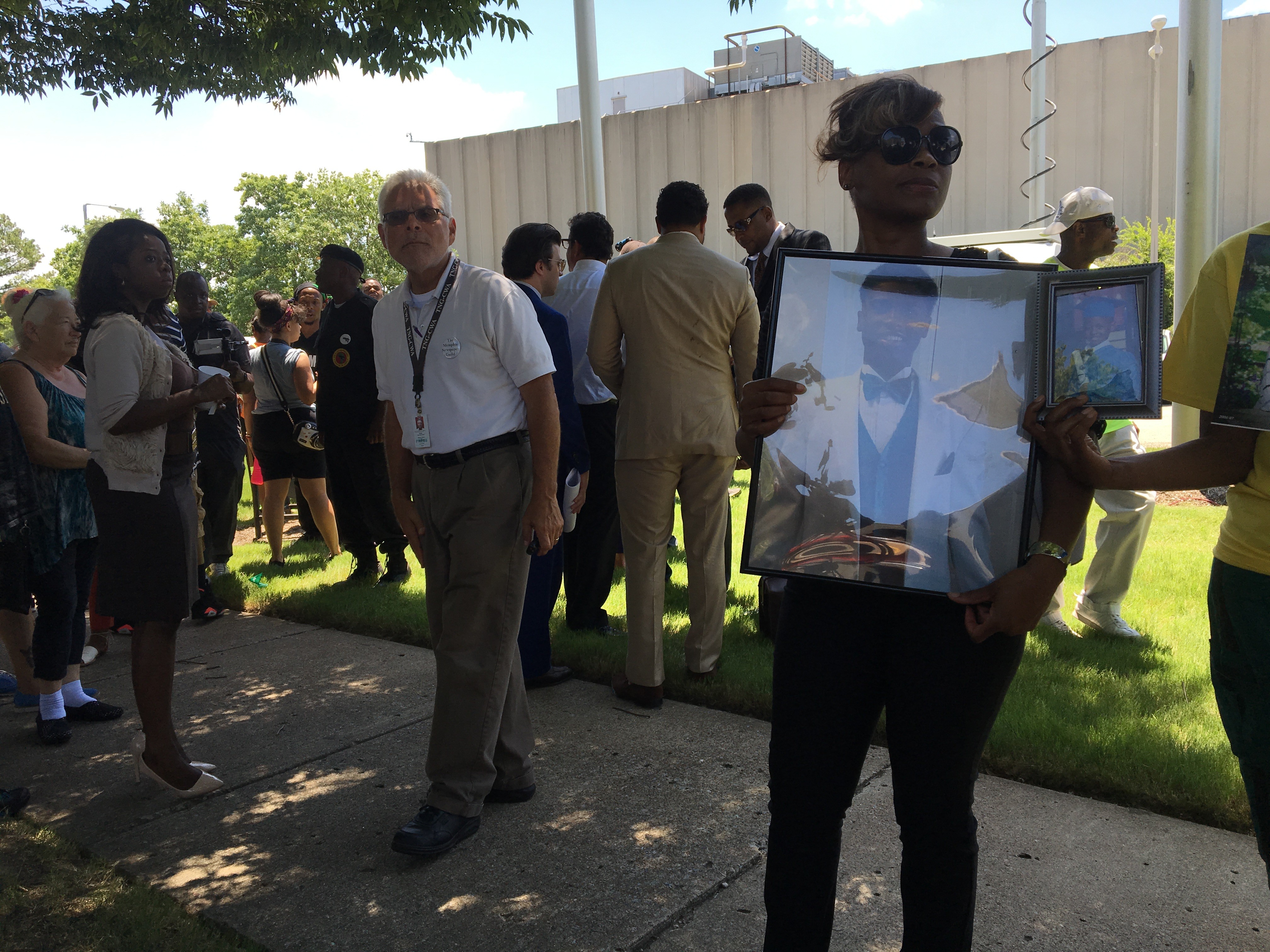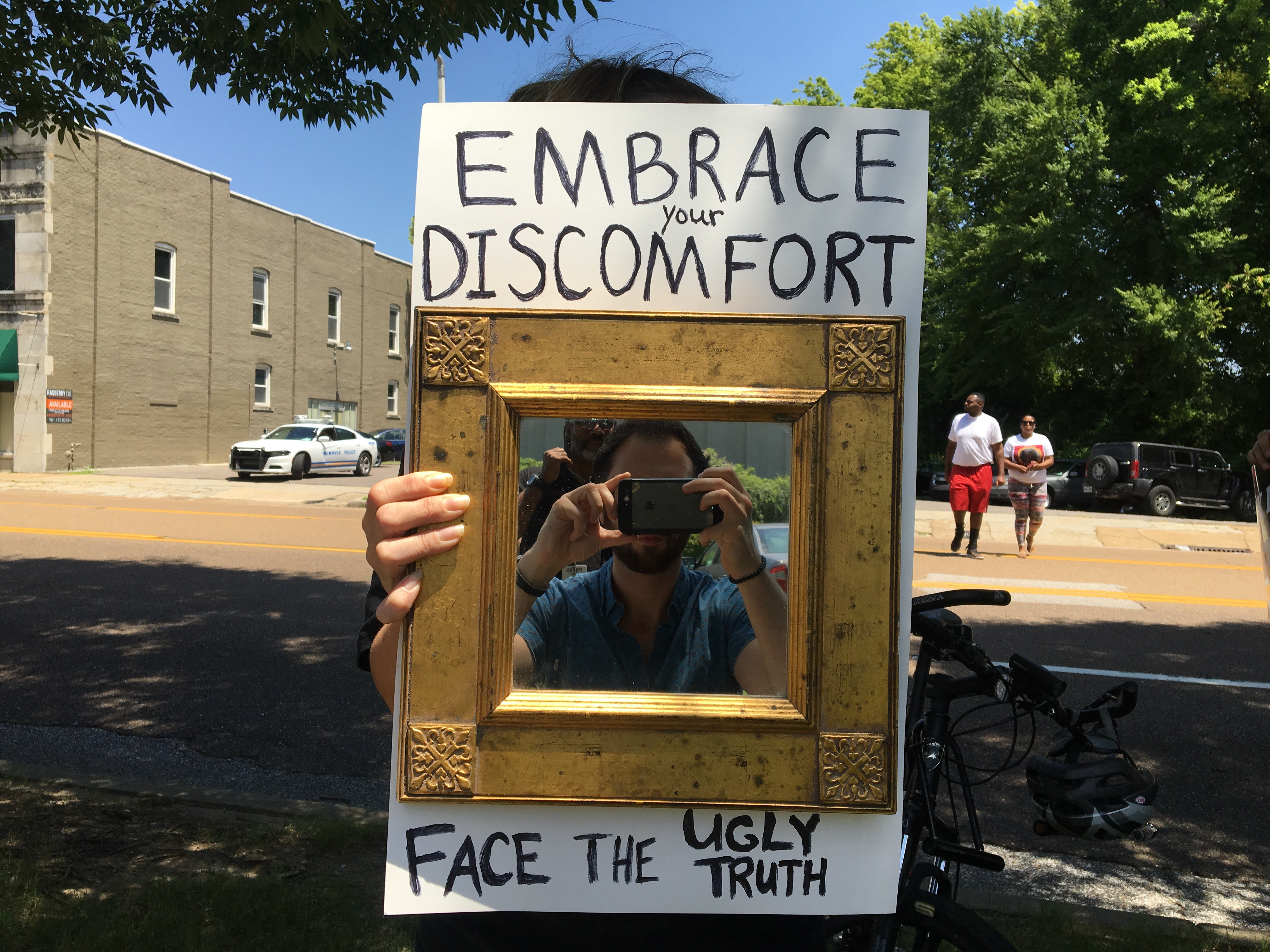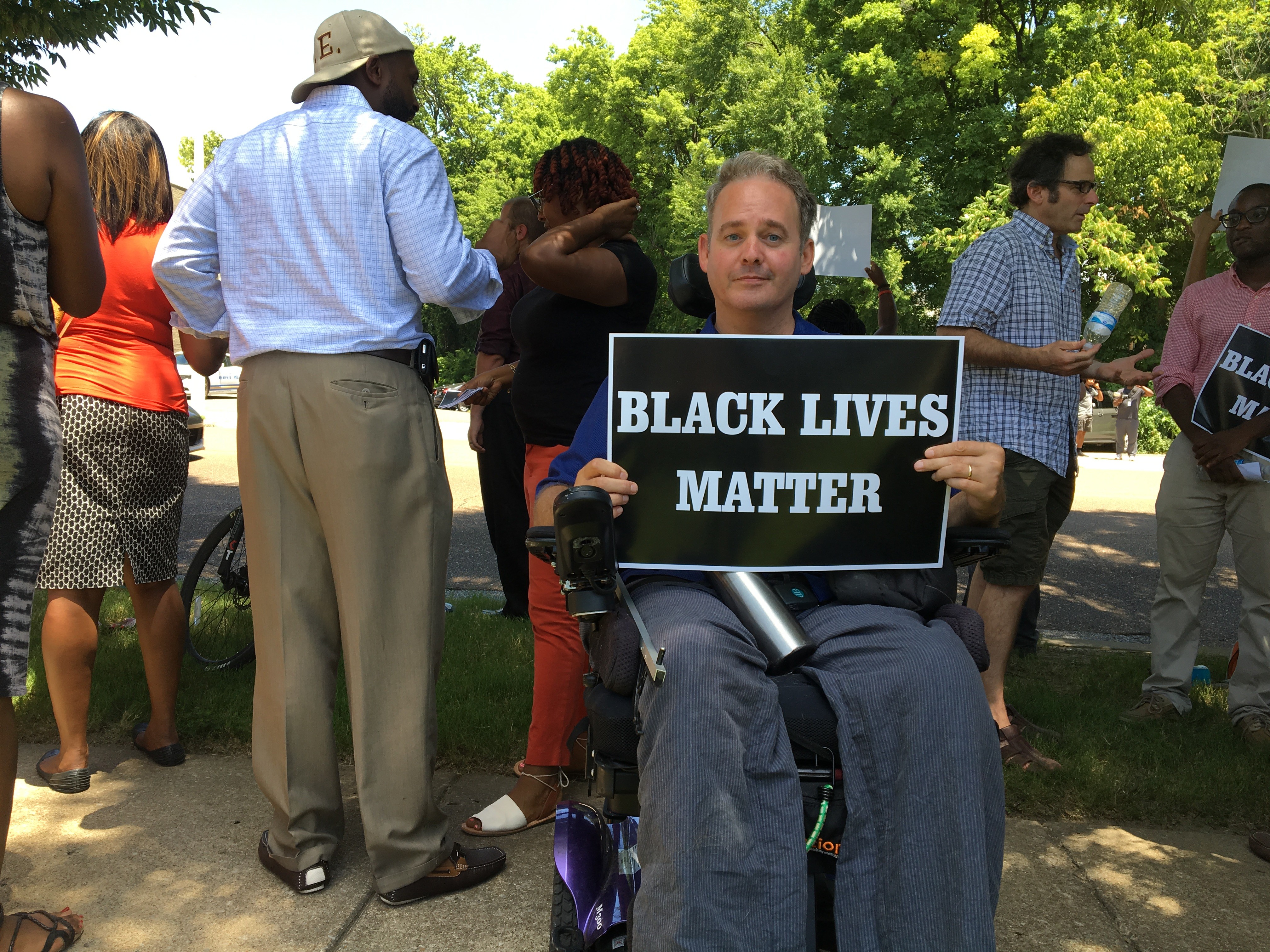 Joshua Cannon
Joshua Cannon
[pullquote-1] [pullquote-3]  Joshua Cannon
Joshua Cannon
A protest assembled at the Commercial Appeal Wednesday objecting the publication’s coverage soon became a two-fold demonstration.
Rev. Earle Fisher, who organized the protest, and members of the Memphis chapter of Black Lives Matter met behind closed doors with the paper’s editorial staff. The discussion came after the paper ran a headline that read “gunman targeted whites” following a recent shooting in Dallas, Texas which resulted in five officer’s deaths. Fisher said “what happened at the Commercial Appeal is just a symptom of a broader, structural, unjust, and white supremacist system.”
[pullquote-2] Commercial Appeal Editor Louis Graham said in an editorial that the headline was tone deaf and avoided the nuances of a complex situation. Many pointed to the paper’s June 15 coverage of Dylan Roof, when he was accused of killing nine African-Americans inside their Charleston, South Carolina church — which also ran at the top of page one. The headline read, “Suspect Caught.”
 Joshua Cannon
Joshua Cannon
Fisher returned with Commercial Appeal President and Publisher George Cogswell after the meeting ended to address what Fisher said was a “frank and robust” conversation.
“One of the things we came away with was the reality of the need for cultural sensitivity training and we also agreed to meet monthly over the next few months,” Fisher said. “We will try to aid and assist with such things as adequate representation not just in the media as it relates to what’s in the paper, but also who is in the office. We just met with four men, and there was not adequate gender representation. There is no black investigative journalist at the Commercial Appeal. We vowed to help recruit some. We didn’t ask for anyone to be fired, we just want to deal with where they have been lacking.”
Cogswell said they discussed diversity in the newsroom and the overall organization, an issue Gannett, the publication’s new owner, can help resolve as it provides resources, diversity training, and education.
“We have an effort in place to constantly try and improve that diversity,” Cogswell said. “Our organization, like many others, does not reflect the make up of our community, which, in this city, is 65 percent African American. We’ve also pledged to provide space in the op-ed section and to meet as often as we can. It was a very good ‘first date,’ as I would call it.”
 Joshua Cannon
Joshua Cannon
As the meeting occurred, the family and attorneys of Darrius Stewart announced to at least 30 to 40 protestors on the front lawn that they will sue the city, former Memphis Police Director Tony Armstrong, and MPD officer Connor Schilling.
“We’re here in solidarity with your overall issues,” said Malik Z. Shabazz, attorney for Mary Stewart, Darrius’ mother, who is suing the city for $17 million. “It means something.”
Stewart, holding a framed photo of her son dressed in a white tuxedo, added: “I’ve been talking about what kind of person my son was for about a whole year now. I’ve been fighting for justice for a whole year. Connor Schilling should receive the death penalty. He committed first degree murder. I wouldn’t care if he was black and did my son like that. This is not about race — this is about justice and truth. Don’t think it’s because he’s caucasian.”
Schilling killed Stewart last July. Stewart was unarmed and was attempting to flee the scene. Schilling shot twice, killing Stewart. Schilling was not fired but was allowed to retire with full pension benefits from MPD.
Wednesday’s demonstration followed nationwide protests after two black men, Alton Sterling and Philando Castile, were shot and killed by police. About 1,000 protestors shut down the Interstate 40 bridge on Sunday.
Shon Owsley, 22, said he came to the Commercial Appeal protest because he was tired of his voice not being heard.
“Most of these black men getting killed are around my age,” Owsley said. “I could be in this position. It makes me afraid. It makes me afraid because I’m a young black man trying to see in a white world. It makes me afraid because I’m a young black man and I have to look over my shoulder not only for random people, but also for the people who are supposed to protect and served. I’m afraid because my life could be ended at a red light by a police officer. I’m afraid because my life could be ended because of a busted tail light. We have to change the entire system.”